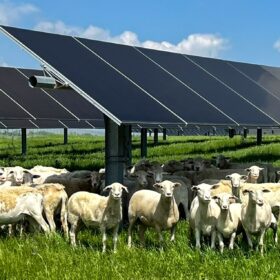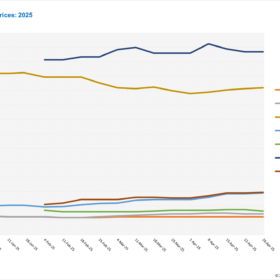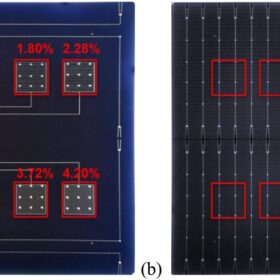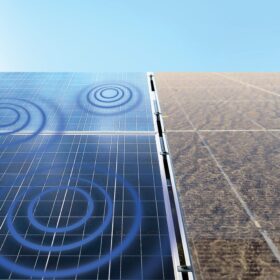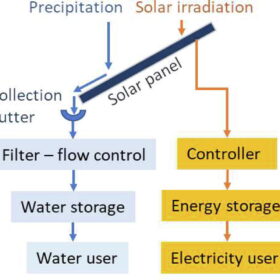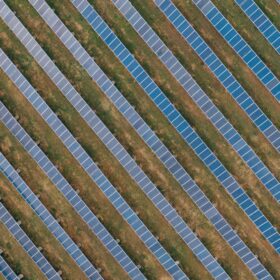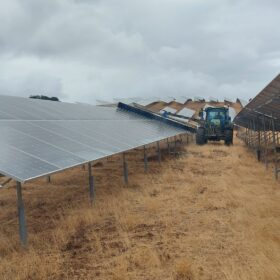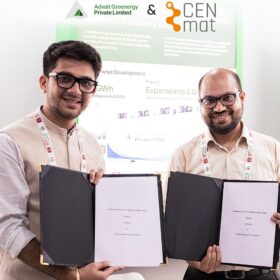Solar grazing supports healthier soil, food for sheep, study finds
Solar sheep grazing helps to create a beneficial dual-use environment, found American Solar Grazing Association in a two-year study conducted at 31 different solar sites.
China module prices bearish, U.S. prices rise on tariff policies
In a new weekly update for pv magazine, OPIS, a Dow Jones company, reports that TOPCon modules from China held steady at between $0.085-0.090/W. It also reveals that Europe prices for TOPCon modules of over 450 W rose by 0.96%, assessed at €0.105/W.
Jolywood’s laser-assisted firing process increases TOPCon solar cell efficiency by 0.6%, says UNSW research
New research from the University of New South Wales have found that the Special Injected Metallization (JSIM) technique developed by Chinese manufacturer Jolywood can considerably increase TOPCon solar cell efficiency. The scientists described precisely how laser-assisted firing enhances cell performance, reportedly filling critical gaps in industrial TOPCon cell optimization.
Fraunhofer presents solar module cleaning tech using structure-borne sound
Fraunhofer Institute for Digital Media Technology IDMT has developed a solar module cleaning system that uses structure-borne sound and targeted mechanical vibrations to dislodge dust. Researchers will present the technology at Intersolar Europe in Munich from May 7 to 9.
How to combine photovoltaics with rainwater harvesting
Scientists have developed a system that harvests rainwater running off PV panels for household use or hydrogen production. Their analysis showed that, in the southern Sahel, the system can meet both the energy and water requirements for electrolysis, with surplus rainwater covering up to 50% of a household’s daily water demand.
Fraunhofer ISE streamlines use of epitaxial wafers in TOPCon solar cell manufacturing
Researchers at the German research institute have demonstrated that the so-called EpiWafers could be used directly for solar cell fabrication without needing a pre-gettering step. Their experiments provide a proof of principle* for epitaxially grown silicon wafers from German wafer manufacturer NexWafe GmbH.
The Hydrogen Stream: BPCL commissions 5MW green hydrogen plant at Bina refinery
Bharat Petroleum Corp. Ltd (BPCL) has commissioned its first — and one of India’s largest — green hydrogen plant at the Bina Refinery in Madhya Pradesh.
U.S. solar capacity expected to triple in next 10 years
Wood Mackenzie cautioned that policy uncertainty could significantly alter its projections for solar industry growth.
Longi expresses interest in solar manufacturing in Algeria
A delegation from Chinese module maker Longi met with officials from Algeria’s Ministry of Energy and Mining last week to discuss cooperation that would support Algeria’s domestic solar market, including a solar manufacturing facility.
Chemitek Solar launches new antistatic soiling mitigation coating
The Portuguese company said its new anti-soiling solution lasts for at least a year. It can be applied during routine cleaning operations by mixing it directly in the cleaning water.
